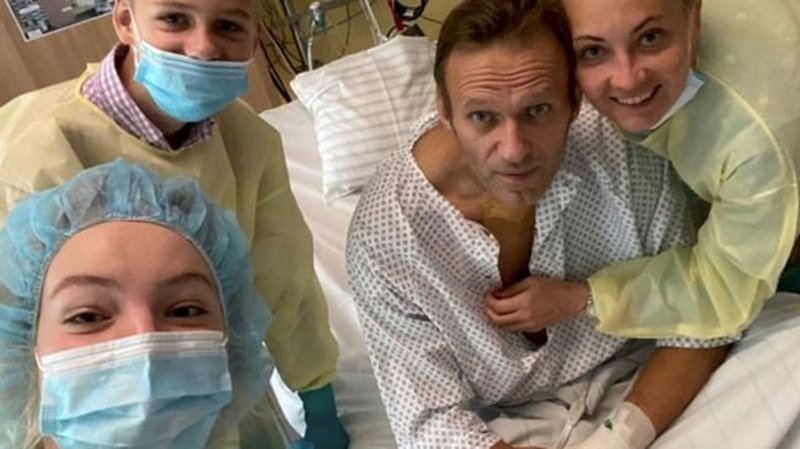
Navalny posts photo of himself online, says he can breathe
BERLIN — Russian opposition leader Alexei Navalny posted a picture of himself from his hospital bed in Germany on Tuesday, looking gaunt but alert and saying that he was happy to be breathing on his own finally after being poisoned with a nerve agent.
The Instagram post was the first image of the 44-year-old released since he was taken to Berlin’s Charite hospital two days after falling ill on a domestic flight in Russia on Aug. 20.
“Hi, this is Navalny,” he wrote in the Russian-language post. “I have been missing you. I still can’t do much, but yesterday I managed to breathe on my own for the entire day.”
Navalny had been kept in an induced coma for more than a week as he was treated with an antidote before hospital officials said a week ago that his condition had improved enough for him to be brought out of it.
